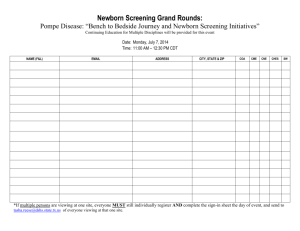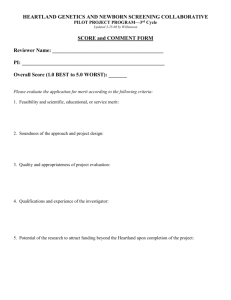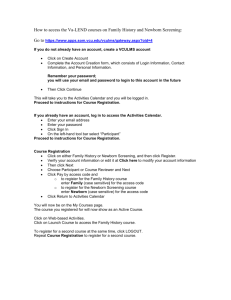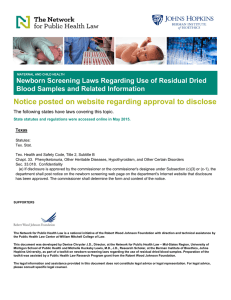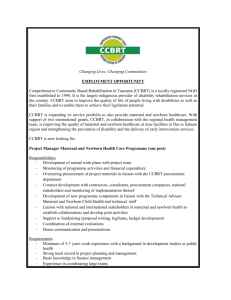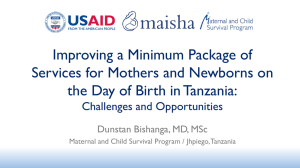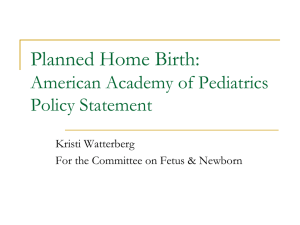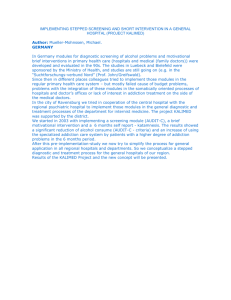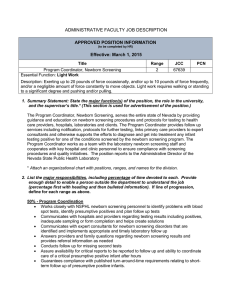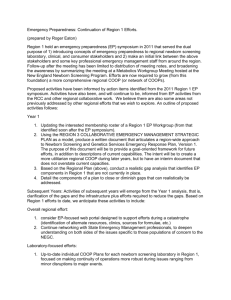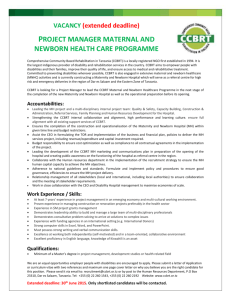Initial Draft Submission
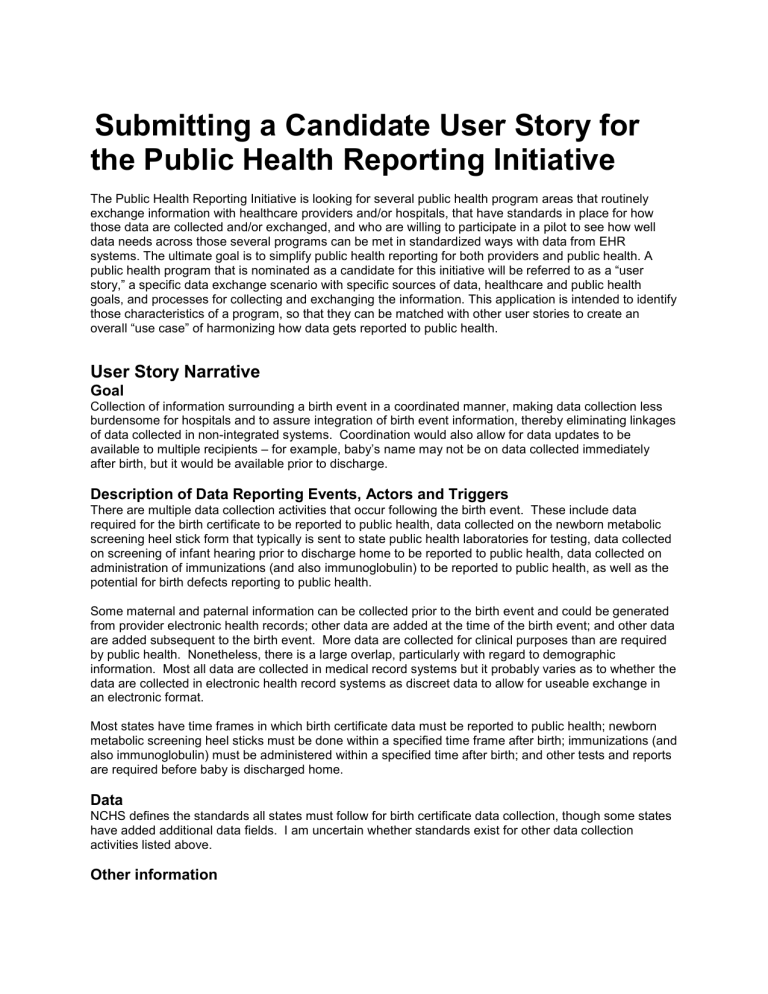
Submitting a Candidate User Story for the Public Health Reporting Initiative
The Public Health Reporting Initiative is looking for several public health program areas that routinely exchange information with healthcare providers and/or hospitals, that have standards in place for how those data are collected and/or exchanged, and who are willing to participate in a pilot to see how well data needs across those several programs can be met in standardized ways with data from EHR systems. The ultimate goal is to simplify public health reporting for both providers and public health. A pu blic health program that is nominated as a candidate for this initiative will be referred to as a “user story,” a specific data exchange scenario with specific sources of data, healthcare and public health goals, and processes for collecting and exchanging the information. This application is intended to identify those characteristics of a program, so that they can be matched with other user stories to create an overall “use case” of harmonizing how data gets reported to public health.
User Story Narrative
Goal
Collection of information surrounding a birth event in a coordinated manner, making data collection less burdensome for hospitals and to assure integration of birth event information, thereby eliminating linkages of data collected in non-integrated systems. Coordination would also allow for data updates to be available to multiple recipients – for example, baby’s name may not be on data collected immediately after birth, but it would be available prior to discharge.
Description of Data Reporting Events, Actors and Triggers
There are multiple data collection activities that occur following the birth event. These include data required for the birth certificate to be reported to public health, data collected on the newborn metabolic screening heel stick form that typically is sent to state public health laboratories for testing, data collected on screening of infant hearing prior to discharge home to be reported to public health, data collected on administration of immunizations (and also immunoglobulin) to be reported to public health, as well as the potential for birth defects reporting to public health.
Some maternal and paternal information can be collected prior to the birth event and could be generated from provider electronic health records; other data are added at the time of the birth event; and other data are added subsequent to the birth event. More data are collected for clinical purposes than are required by public health. Nonetheless, there is a large overlap, particularly with regard to demographic information. Most all data are collected in medical record systems but it probably varies as to whether the data are collected in electronic health record systems as discreet data to allow for useable exchange in an electronic format.
Most states have time frames in which birth certificate data must be reported to public health; newborn metabolic screening heel sticks must be done within a specified time frame after birth; immunizations (and also immunoglobulin) must be administered within a specified time after birth; and other tests and reports are required before baby is discharged home.
Data
NCHS defines the standards all states must follow for birth certificate data collection, though some states have added additional data fields. I am uncertain whether standards exist for other data collection activities listed above.
Other information
Some national standards exist. This would be an opportunity to see if these standards can be embraced by other public health partners.
Stakeholder Commitment
Hospitals have repeatedly requested that public health consider consolidating collection of these data.
The Public Health Informatics Institute published a sourcebook for planning and development in June
2003 entitled Integration of Newborn Screening and Genetic Service Systems with Other Maternal &
Child Health Systems . In December 2003 they published proceedings from a conference on ‘A Vision for
Child Health Information Systems’. Both demonstrate stakeholder commitment and identify opportunities for collaboration between clinical care and public health, including the integration of information systems.
Contact Information
Lynn Giljahn
Ohio Department of Health
Informatics Manager
Lynn.giljahn@odh.ohio.gov
614-644-1844
